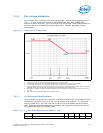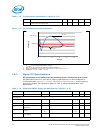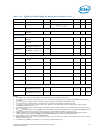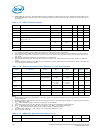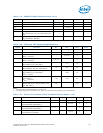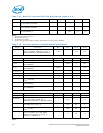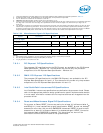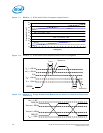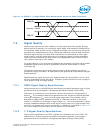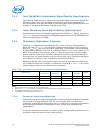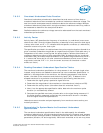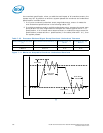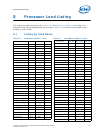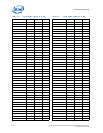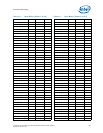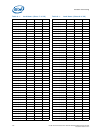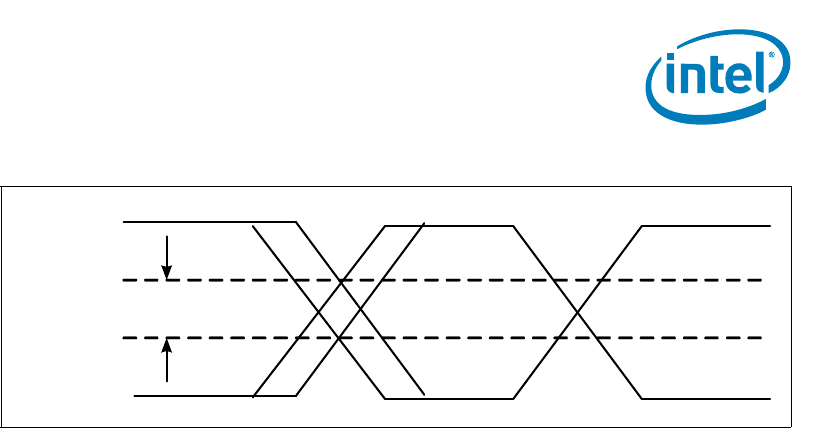
Intel® Xeon® Processor E5-1600/E5-2600/E5-4600 Product Families 183
Datasheet Volume One
7.9 Signal Quality
Data transfer requires the clean reception of data signals and clock signals. Ringing
below receiver thresholds, non-monotonic signal edges, and excessive voltage swings
will adversely affect system timings. Ringback and signal non-monotonicity cannot be
tolerated since these phenomena may inadvertently advance receiver state machines.
Excessive signal swings (overshoot and undershoot) are detrimental to silicon gate
oxide integrity, and can cause device failure if absolute voltage limits are exceeded.
Overshoot and undershoot can also cause timing degradation due to the build up of
inter-symbol interference (ISI) effects.
For these reasons, it is crucial that the designer work towards a solution that provides
acceptable signal quality across all systematic variations encountered in volume
manufacturing.
This section documents signal quality metrics used to derive topology and routing
guidelines through simulation. All specifications are specified at the processor die (pad
measurements).
Specifications for signal quality are for measurements at the processor core only and
are only observable through simulation. Therefore, proper simulation is the only way to
verify proper timing and signal quality.
7.9.1 DDR3 Signal Quality Specifications
Various scenarios for the DDR3 Signals have been simulated to generate a set of layout
guidelines which are available in the appropriate Platform Design Guide (PDG).
Overshoot (or undershoot) is the absolute value of the maximum voltage above or
below V
SS
. The overshoot/undershoot specifications limit transitions beyond specified
maximum voltages or V
SS
due to the fast signal edge rates. The processor can be
damaged by single and/or repeated overshoot or undershoot events on any input,
output, or I/O buffer if the charge is large enough (i.e., if the over/undershoot is great
enough). Baseboard designs which meet signal integrity and timing requirements and
which do not exceed the maximum overshoot or undershoot limits listed in Table 7-24
will insure reliable IO performance for the lifetime of the processor.
7.9.2 I/O Signal Quality Specifications
Signal Quality specifications for PCIe* Signals are included as part of the PCIe* DC
specifications. Various scenarios have been simulated to generate a set of layout
guidelines which are available in the appropriate Platform Design Guide (PDG).
Figure 7-10. BCLK{0/1} Single Ended Clock Measurement Points for Delta Cross Point
V
CROSS DELTA
= 140 mV
BCLK_DN
BCLK_DP



